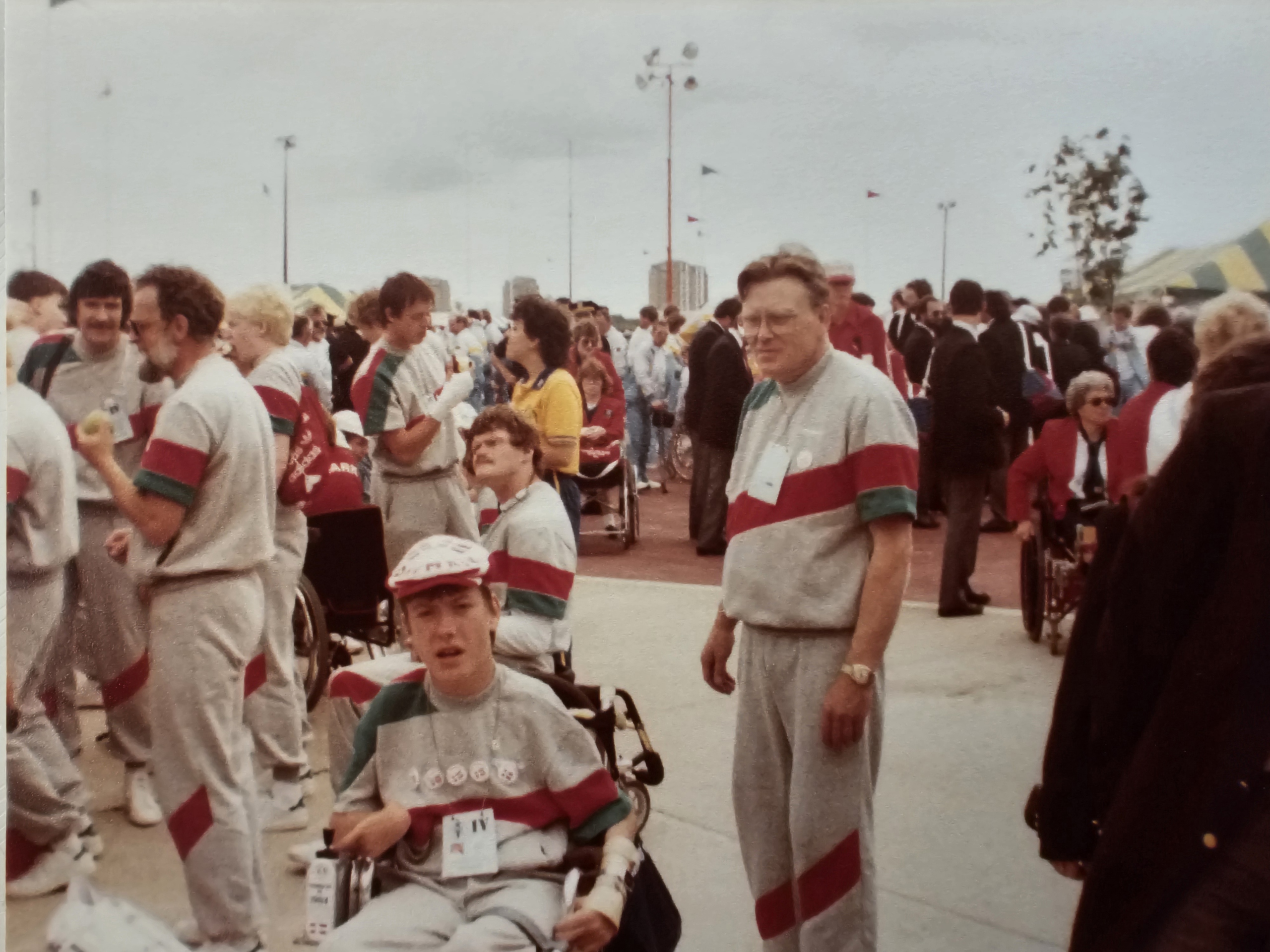The Paris 2024 Paralympic Games will be the 11th occasion boccia has appeared at the Games and represents the 40th anniversary of its first inclusion in 1984. In celebration of that landmark, World Boccia is examining the roots of that Paralympic legacy in a two-part series. Part one features Danish athlete, Henrik Woffinden.
As a 17-year-old, Henrik Woffinden – then known as Henrik Jorgensen – had little experience of competition outside of his home nation of Denmark.
“I had competed at some youth events in Norway, but that was about it,” he recalls of his time just before his first Paralympic Games back in 1984.
But any nervousness or anxiety was submerged beneath the sheer excitement of getting on an aircraft and flying to New York City to be among the first group of boccia athletes to take part in the Paralympics.
The thrills continued to the day of his departure for home, when the teenager returned to Copenhagen with three gold medals in his hand luggage.
Like the others among his small group of fellow competitors, Woffenden was a pioneer, a trailblazer. Boccia had never been included at Paralympic level before, there were only two classifications – C1 and C2 – and only five medals were on offer.
This was also a time well before preparation camps, squad meetings, opposition analysis, sport scientists, nutritionists, precision-engineered equipment, large crowds of spectators and live TV cameras.
Woffinden got on a plane with his father, Jorgen – a trained mechanic who swapped wheelchair front wheels for office-chair wheels before his son’s track and field competitions – rolled up to the start lines and competed.
It was a routine that worked, because as well as his boccia gold in the men’s individual C1, the multi-talented young Dane also won para athletics gold in the slalom C1 category – weaving his wheelchair through cones on a circuit – and a third individual gold in the precision throw.
“Before I left home, people were asking me, ‘are you brining home a gold medal?’ I told them I’d tell them the answer when I got home,” he says.
“But I was very proud to be representing my country and I was determined to try and do my best.”
“The boccia competition was obviously very different to the way things are now. I only had to win three or four matches to win the gold.
“But I was confident because in Denmark at that time the sport had no classifications. Everybody played anyone else, so I could often be playing someone standing up with strong arms, who might give me a serious beating because I didn’t have the strength to reach the other end of the court!
“So, it was nice in New York to suddenly be playing people with the same disability as me.”
Woffinden – who took his wife’s surname name when he married – beat Canada’s Russell Cecchini (silver)) to earn the gold, with Great Britain’s Terry Hudson claiming the bronze.
Carol Johnson (GB) took the women’s individual C1 title, while the men’s C2 gold went to Craig Clifton of the USA, with compatriot Nancy Anderson winning the women’s C2. Portugal were the winners of the one team event, a mixed competition, where they finished ahead of GB and the USA.
There were few spectators in the venue, recalls Woffinden – who went on to compete at four more Paralympic Games – and little fanfare or recognition when he returned to Denmark.
“In the Olympic Games, all the Danish gold medal winners met our Queen. But there was nothing for Paralympians.
“We went unnoticed, really. There was no real coverage in the media and Denmark was not a county that gave much coverage to disability sports. It’s a little better, now, but back then we were not given any recognition.”
The very first boccia Paralympic champion defended his title in Seoul in 1988, but had to settle for a silver medal and a team bronze. Four years later, he won individual bronze and team silver in Barcelona in 1992, before individual silver in Atlanta in 1996.
He would have gone to the 2000 Paralympic Games in Sydney as the world-ranked number one, but a ruling at the time denied him because individual entries were only open to athletes from nations ranked inside the top 12 teams in the world. Denmark were 13th.
An appeal was too late for Woffinden to make the Games in Australia, but he did return to compete at a fifth Paralympics in 2004 in Athens.
Retirement followed and a new career opened as an International Referee, alongside his profession as a computer programmer.
But for novelty, nothing will ever compare with that hot summer in New York 40 years ago, where he made history from himself and the sport.
“One moment, I was finishing my preliminary school and sitting a physics exam. Later that day, I was flying to New York to compete for my country.
“It was an amazing time.”


1 Comment
Comments are closed.